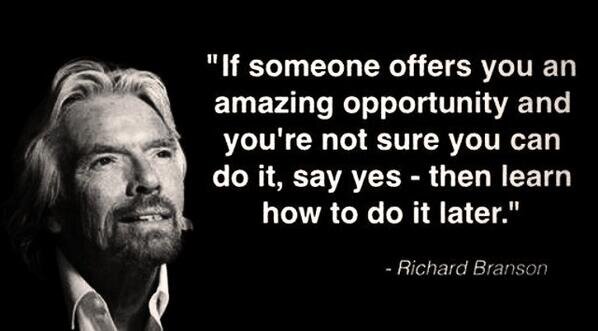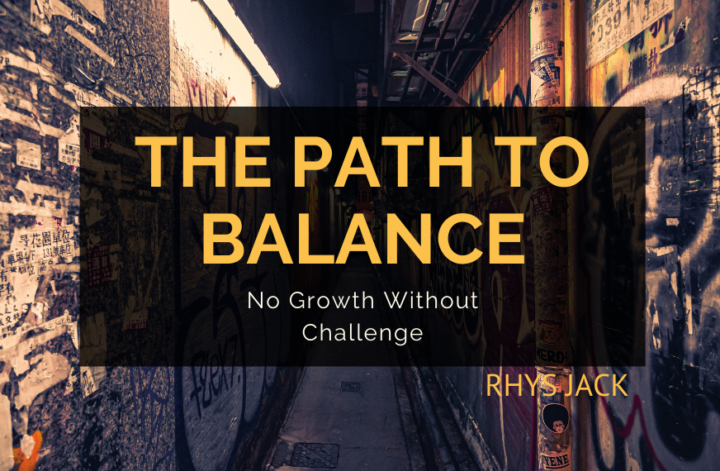A slight shift in the way we do things can have a sizable impact on our results. When we change what we do or how we do it we are pivoting away from resistance and familiarity in search of something that yields better results.
A pivot is defined as the central point on which a mechanism turns. Throughout our lives we should pivot toward new opportunities, and do it frequently. It could be in our career, business, fitness, habits, beliefs, social circles, financial decisions or breakfast choices – any area of life that has unrealised or unexplored potential in helping us achieve our vision.
The central point which we pivot around is our purpose, our reason why, which should remain fixed as the central point out of which all of these activities flow.
“A pivot is a change in strategy, without a change in vision”
Eric Ries
There are many great examples of individuals and companies who through making a slight pivot in what they did or the way they did it were able to drastically improve their results.
Before becoming a $200 Billion dollar company, Youtube began its life on the internet as a dating website. The founders were so desperate for new videos that they actually paid people $20 to post content to the site.
Netflix once made 99% of its revenue from selling DVD’s online before its owners decided to shift to rentals only, and then again to streaming content online. Blockbuster video famously laughed them out of the room when the founders approached them to buy the company from them.
3M developed the post-it note almost by accident after researchers looking into super strong adhesives found a less effective alternative with peelable characteristics. They persisted with the idea and now produce 50 billion post-it notes per year.
Ricky Gervais was once the singer in a boyband called ‘Seona Dancing’ who’s top song peaked at number 79 on the UK singles chart. They decided to break up, sending Gervais pivoting toward a career in stand up comedy.
No one knew they needed removable sticky notes or streaming services or YouTube or Ricky Gervais’ comedy until they pivoted.
Here are four principles I’ve found from observing how successful people and businesses make effective strategic pivots to improve results.

1. Understand Your Strengths
Everyone has strengths, but not everyone uses those strengths as effectively as they could. Sometimes we hide our strengths or aren’t utilising them to their potential in our everyday lives. Knowing your strengths – the things you have clear evidence that you do well, and looking for new ways to use them in unique ways, can open potential opportunities in unlikely areas.
Jose Mourinho started his career in football management as a translator. Being able to speak multiple languages fluently assisted him greatly in his early career working under some of the top managers in Europe. It also assisted him in learning how to motivate players and understand the minds and tactics of the coaches he worked under.
From unconventional beginnings he has since gone on to become one of the most successful football managers of all time, winning over 20 major titles across Europe. He uses his greatest strength – communication, exceptionally well in everything he does, from addressing the media, the fans and getting the best out of his players.

2. Implement Fast, Perfect Later.
Pivoting is approaching something from a different angle. But most new attempts struggle and can easily fail in the early stages. That’s why a degree of trial and error, coupled with fast implementation is necessary in the beginning.
There’s no benefit to wasting too much time asking ‘what if’ or planning out every possible outcome to your strategy before launching it if the root idea isn’t going to stand and grow naturally.
Wilbur and Orville Wright operated a bicycle shop in Dayton Ohio for many years before they successfully invented, built and piloted the first motor operated aircraft.
Unlike other more qualified and well-resourced groups who were competing to build the first manned aircraft at the time, what separated the pair was their ability to implement fast, repair their failed aircraft on the run, continue to test effectively and evolve their design quickly.
Sometimes, the only way to find out if an idea flies is to experiment, to test quickly, to take a leap of faith and keep on trying until it works. The most important step is the next one, if that step is aligned with your strengths and purpose it’s a good step. The finer details will come later.
“Failure is an option here. If things are not failing, you are not innovating enough.”
Elon Musk
3. Take Calculated Risks
Timing and understanding the environment around us plays a huge role in successfully shifting strategy.
The growth in popularity of DVD’s and the emergence of online streaming were two huge environmental factors on the path of the incredible success of Netflix. Without these two factors occurring at the time they did, the company wouldn’t have achieved the success it has.
We all know the pandemic, in particular, has been an incredibly challenging time for people and businesses who have been forced to pivot into different careers, segments and offerings, changing the way they were previously operating as a result of the new conditions.
When we pivot, we are doing it into a world that is also changing around us daily, and which throws up new opportunities all the time. Having a finger on the pulse of these external opportunities is a vital component for successfully shifting strategy.
4. Make Pivotal Decisions Confidently
Confidence is an important factor in pivoting what we do and how we do it. Without confidence, it can be easy to fall into analysis paralysis, fear and resistance. Confidence is a belief that what has happened in the past can happen again.
When you feel something has worked based on your experience, strengths and understanding of the conditions around you, why shouldn’t it happen again?
One of the best examples of confidently pivoting is Richard Branson and the Virgin Group. Across multiple sectors and over many decades, Branson continues to consistently pivot the business, from magazines and records to gyms, beverages, mobile phones and airlines, he does it all with unmatched confidence, knowing that he has done it before and he can do it again.

Shifting strategy can be uncomfortable, but it’s necessary for growth. If we are clear on our strengths, are able to implement quickly and have a finger on the pulse of the environment around us we can push forward confident of the road ahead. Small shifts in what we do and how we do it can take flight and have enormous outcomes.



